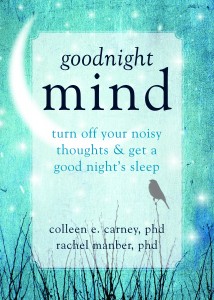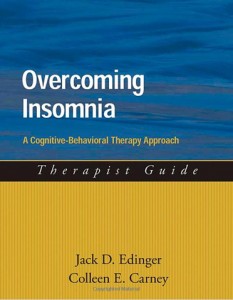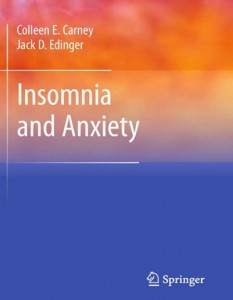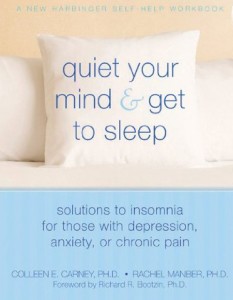Trazodone: Common sleep drug is little-known antidepressant
Last updated: November 2009
Risks and benefits | Should you take it?
What are the top prescribed drugs for insomnia—Ambien? Lunesta? Yes, but there's another: a nearly 30-year-old generic antidepressant called trazodone, which causes drowsiness as a potentially useful side effect.
Trazodone (Desyrel and generic) was approved by the Food and Drug Administration in 1981 for use as an antidepressant.
Though doctors can legally prescribe it for any treatment, the drug does not have an indication for insomnia.
There's very little clinical trial evidence on whether it's effective as a sleep aid when there's no accompanying depression, and only modest evidence when there is.
Treatment guidelines from the American Academy of Sleep Medicine recommend trazodone for insomnia without depression only when other sleep drugs have failed.
But numerous doctors are convinced, based mainly on their own experience, that trazodone is an appropriate sleep medication for many people, even when there's no depression.
Here's why trazodone has become so popular—and what to do if your doctor suggests you try it.
Trazodone: Risks and benefits
While trazodone is rarely used to treat depression alone any more, it's widely prescribed, off-label, at lower doses for treating insomnia, for several likely reasons.
First, trazodone has one distinct advantage—and possibly a few others. It's generic, so it's considerably cheaper than many of the other widely prescribed sleep medications-about $3 for a week's supply, vs. $45 and $34 for eszopiclone (Lunesta), and ramelteon (Rozerem) for a week's supply. (The other frequently used drug, zolpidem, or Ambien, is available as a generic, at $15 for a week's worth.)
And while some of the insomnia drugs like Sonata,Ambien and Lunesta are classified by the FDA as controlled substances and require doctors and pharmacists to take additional steps before they're prescribed or dispensed; trazodone is not a controlled substance, so doctors can prescribe it without constraints.
In addition, many physicians apparently think that trazodone is safer than other frequently prescribed sleep medications. But whether that's correct is not clear.
It's true that the other drugs can impair your ability to recall new experiences, and may even—although rarely—cause you to walk, eat, have sex, or drive a car while still essentially unconscious.
We could find no evidence to date of those problems having been reported with trazodone.
Moreover, many doctors seem to believe that trazodone is less likely than even the newer sleep drugs to cause dependency and, when discontinued, renewed insomnia. Yet there's little evidence to prove or disprove those ideas.
And, trazodone has certain risks of its own. In particular, it's more likely than the newer sleep drugs, particularly the short-acting ones, to leave you feeling drowsy the next day, which increases the chance of accidents.
It can also cause abnormally low blood pressure and, in turn, dizziness or even fainting, particularly in seniors.
Trazodone can also cause heart-rhythm disorders.
It might possibly weaken the immune system.
And some evidence suggests it can cause priapism, or persistent erection, a medical emergency that may require surgery and can lead to impotence if not treated promptly.
Moreover, a black-box warning in the package insert notes that trazodone, like other antidepressants, can increase the risk of suicidal thoughts and behavior in children and adolescents.
Trazodone:
Should you take it?
For the average person who has occasional brief bouts of insomnia, making certain changes to your lifestyle may help, including: avoiding big meals, alcohol, smoking and exercising late at night or working or watching TV in bed. (See sidebar for a full list.)
If those don't work, we recommend first trying an inexpensive over-the-counter drug containing an antihistamine such as diphenhydramine (Benadryl, Nytol, Sominex, and generic) or doxylamine (Unisom Nighttime Sleep-Aid and generic).
If that doesn't help, we advise seeking a prescription for generic zolpidem, deemed a Best Buy for insomnia by Consumer Reports Best Buy Drugs, a free public education project.
People with more frequent or persistent insomnia should first be evaluated for other disorders or drug side effects that may be disturbing sleep.
If those are ruled out—or if insomnia persists despite treatment of the underlying problem—non-drug sleep aids such as cognitive behavioral therapy appear to yield better, more lasting results than medication.
If possible, try such treatment before resorting to drugs, which can undermine your motivation to make the behavioral changes.
If your doctor recommends sleeping pills for more than a temporary bout of insomnia without mentioning non-drug therapy, you should mention it yourself.
For more on
such treatment, see our
Best Buy Drug report on drugs to treat insomnia.
Of course, medication is sometimes needed for persistent insomnia-when non-drug treatment is refused, unavailable, or ineffective, or when the sleep disturbance is debilitating.
Here are the main drug options:
Insomnia without depression.
Because there's so little supporting evidence, sleep experts generally recommend trazodone for such insomnia only after the newer sleep drugs have failed.
But more flexibility may be warranted in certain cases, to accommodate the person's preferences and medical history.
For example, people who want to save money or who do not want to take a controlled substance should have the option of trying trazodone. Since doctors usually don't discuss costs with their patients, you may need to raise the issue yourself.
Insomnia with depression.
The best treatment for this has not been determined.
If you have both disorders, discuss the options with your doctor, based on the severity of the depression, the nature of your sleep problem, your medical history and susceptibility to side effects, any possible drug interactions, and, last but not least, your personal preferences.
In general, the most important consideration is managing the depression.
Depression should be treated separately with a more effective antidepressant medication, counseling, or both.
A separate drug can then be prescribed for the insomnia--either a newer sleep medication or low-dose trazodone. Studies have suggested that trazodone plus another antidepressant can improve sleep in these cases.
Alternatively, trazodone might be taken alone, at a higher, antidepressant dose, to treat both problems, or if the newer antidepressants are inappropriate or ineffective.
Precautions to take
In general, avoid trazodone if you're recovering from a heart attack. Inform your doctor if you have abnormal heart rhythms, weakened immunity, active infection, or liver or kidney disease. Use it cautiously if you have heart disease.
You and your doctor should carefully evaluate the effectiveness of the medication and watch for adverse effects. That's especially important for people over age 55 or so, who may elect to take trazodone at even lower doses, since they're more susceptible to falls caused by dizziness or drowsiness and to abnormal heart rhythms.
Close monitoring is also crucial if you're taking trazodone with another antidepressant.
As with any sleep medication, never mix trazodone with alcohol, and use it cautiously if you're taking other sedating medications or antihypertensive drugs. Ask your doctor or pharmacist about other possible drug interactions.
If you develop an erection that is unusually prolonged or occurs without stimulation, discontinue the drug and contact your physician.
Also call your doctor for possible immune-function tests if you develop fever, sore throat, or other signs of infection while taking trazodone.
Poor Sleep Habits and How to Correct Them
Watching TV in bed Don't. TV viewing is not conducive to calming down.
Computer work in bed
Don't work on a computer at all for at least an hour before going to bed.
Drinking alcoholic or caffeinated drinks at night Don't drink either for at least 3 hours before going to bed.
Taking medicines late at night Many prescription and nonprescription medicines can delay or disrupt sleep. If you take any on a regular basis, check with your doctor about this.
Big meals late at night Not ideal especially if you are prone to indigestion or heartburn. Allow at least 3 hours between dinner and going to bed.
Smoking at night Don't smoke for at least 3 hours before going to bed. (Better yet: quit!)
Lack of exercise Just do it! Regular exercise promotes healthy sleep.
Exercise late at night A no-no.
Allow at least 4 hours between exercise and going to bed. It revs up your metabolism, making falling asleep harder.
Busy or stressful activities late at night Another no-no.
Stop working or doing strenuous house work at least 2 hours before going to bed.
The best preparation for a good night's rest is unwinding and relaxing.
Varying bedtimes
Going to sleep at widely varying bed times -- 10:00 p.m. one night and 1:00 a.m. the next -- disrupts optimal sleep.
The best practice is to go to sleep at around the same time every night, even on the weekends
Varying wake-up times
Likewise, the best practice is to wake up around the same time every day (with not more than an hour's difference on the weekends).
Spending too much time in bed, tossing and turning
Solving insomnia by spending too much time in bed is usually counter-productive; you'll become only more frustrated.
Don't stay in bed if you are awake, tossing and turning. Get up and do something else until you are ready to go to sleep.
Late day napping
Naps can be wonderful but should not be taken after 3:00 pm. This can disrupt your ability to get to sleep at night.
Poor sleep environment
Noisy, too hot, uncomfortable bed, not dark enough, not the right covers or pillow -- all these can prevent a good night's sleep. Solve these problems if you have them.






